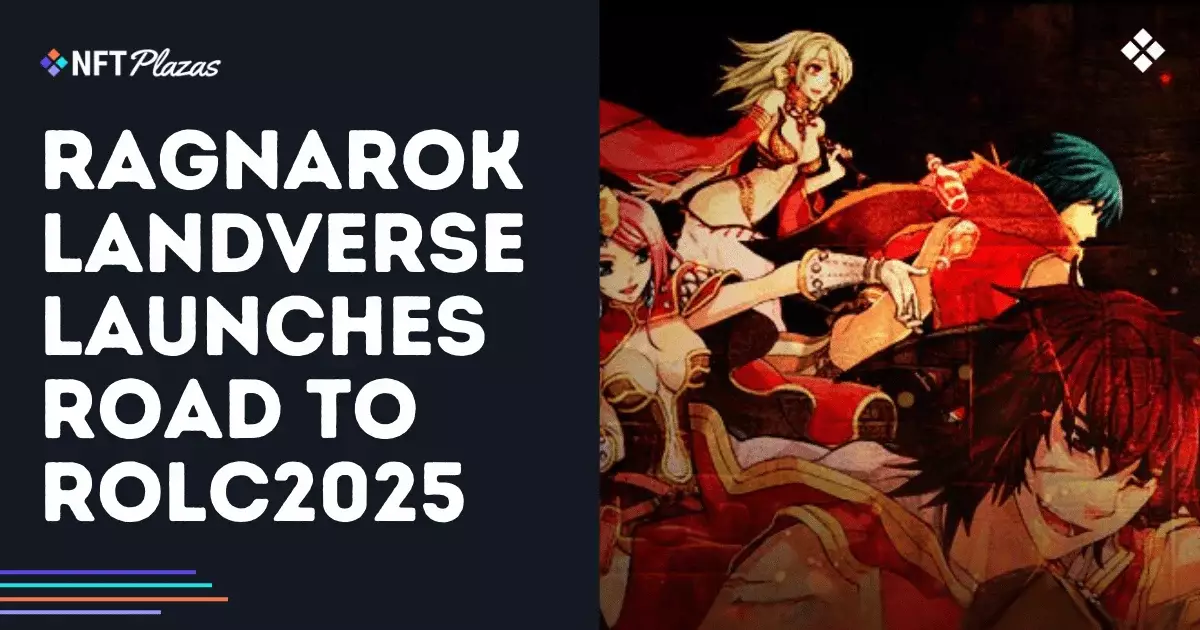The gaming landscape is shifting rapidly, and at the forefront of this transformation is a fascinating development in the realm of NFT (non-fungible token) gaming, particularly with titles like *Ragnarok Landverse: Genesis*. The announcement of the “Road to ROLC2025” is more than just an esports event; it’s a groundbreaking initiative that redefines competitive structure in gaming. Not only does it highlight the importance of guild-based strategies, but it also emphasizes the collective efforts required for success in a world where individual brilliance has often overshadowed team dynamics.
In the Road to ROLC2025 tournament, participation is strictly reserved for guilds, underscoring a fundamental truth: collaboration yields better results. This is a refreshing change in a landscape often dominated by lone wolves, where individual accolades can detract from the collective experience. The new league-based system, culminating in a thrilling elimination phase, allows teams to not only strategize but also develop a stronger camaraderie—a vital element often neglected in solo play scenarios.
The tournament isn’t just a test of skill; it’s a celebration of teamwork, and it lays the groundwork for a new era in esports where the spirit of cooperation reigns supreme.
A Fair System: The League and Elimination Format
What makes the Road to ROLC2025 particularly fascinating is its carefully structured multi-phase competition. The two-season format introduces a level playing field where guilds can gather points through weekly battles, culminating in a Major Event. Each battle revolves around territorial control, a mechanic that encourages strategic thinking and planning among guild members. It compels teams to think long-term, elevating the competitive bar and enhancing the overall spectator experience.
The second phase, the “Day of Domination,” drastically heightens the stakes. Following the league views, a Round Robin format leads to a double-elimination bracket. Here, the top guilds truly showcase their skills, as each match carries the heavy burden of a potential exit from the tournament for lower-ranked teams. This setup not only captures the essence of competition but also embodies a sense of urgency that keeps both players and spectators at the edge of their seats.
The thrilling dynamics of this competition resonate with the idea that gaming can be more than just a casual pastime; it can be a serious sport, that demands dedication, teamwork, and strategic acumen.
Monetary Incentives Reinforcing Participation
While creating a robust competitive environment is essential, the allure of considerable financial rewards cannot be understated. The inaugural season features a prize pool of $30,000, enticing guilds to invest time and resources into honing their strategies. Such financial stakes serve as a motivation for players and teams alike, driving various guilds to refine their skills in a bid for the glory of victory.
Furthermore, the upcoming second season of the Road to ROLC2025 promises additional prizes, although the specifics are yet to be announced. The incentives underscore a crucial truth: in today’s digital landscape, competitive gaming is not merely a hobby; it’s a potentially lucrative venture.
However, we must tread carefully with the monetization aspect. While financial incentives can drive participation, they also risk overshadowing the original essence of gaming, which is rooted in enjoyment and community. Striking a balance will be vital to maintain the game’s integrity, ensuring that it remains a source of fun and fellowship, not just financial gain.
The Challenge Ahead: Community and Integrity
As the Road to ROLC2025 unfolds, the gaming community faces a cultural crossroads. On one hand, the guild-only format fosters social interaction, creating a sense of belonging. Yet, this exclusivity can also alienate solo players who might feel sidelined in this brave new world of team-centric competition.
That said, the emphasis on collective participation should not deter individual players from seeking their niche within guilds. Instead, it should challenge them to evolve, boosting recruitment and forming tight-knit teams driven by shared goals. The burgeoning discourse around community engagement and strategy in this new competitive environment will be fascinating to observe.
If approached thoughtfully, the Road to ROLC2025 could set a standard in the esports realm, marrying competitive rigor with community spirit, and reminding us that at its heart, gaming represents camaraderie, adventure, and a shared love for engaging battles—collectively fought, together.















